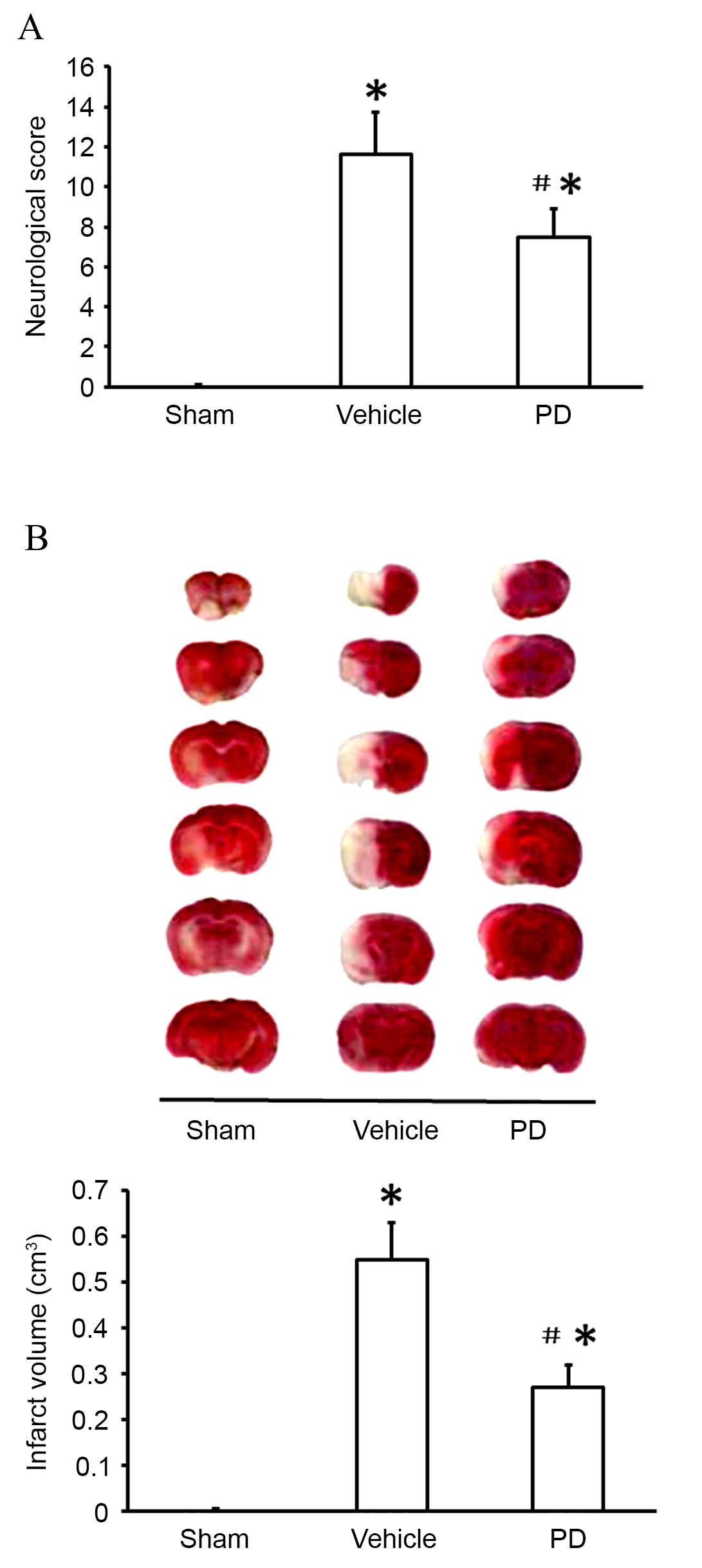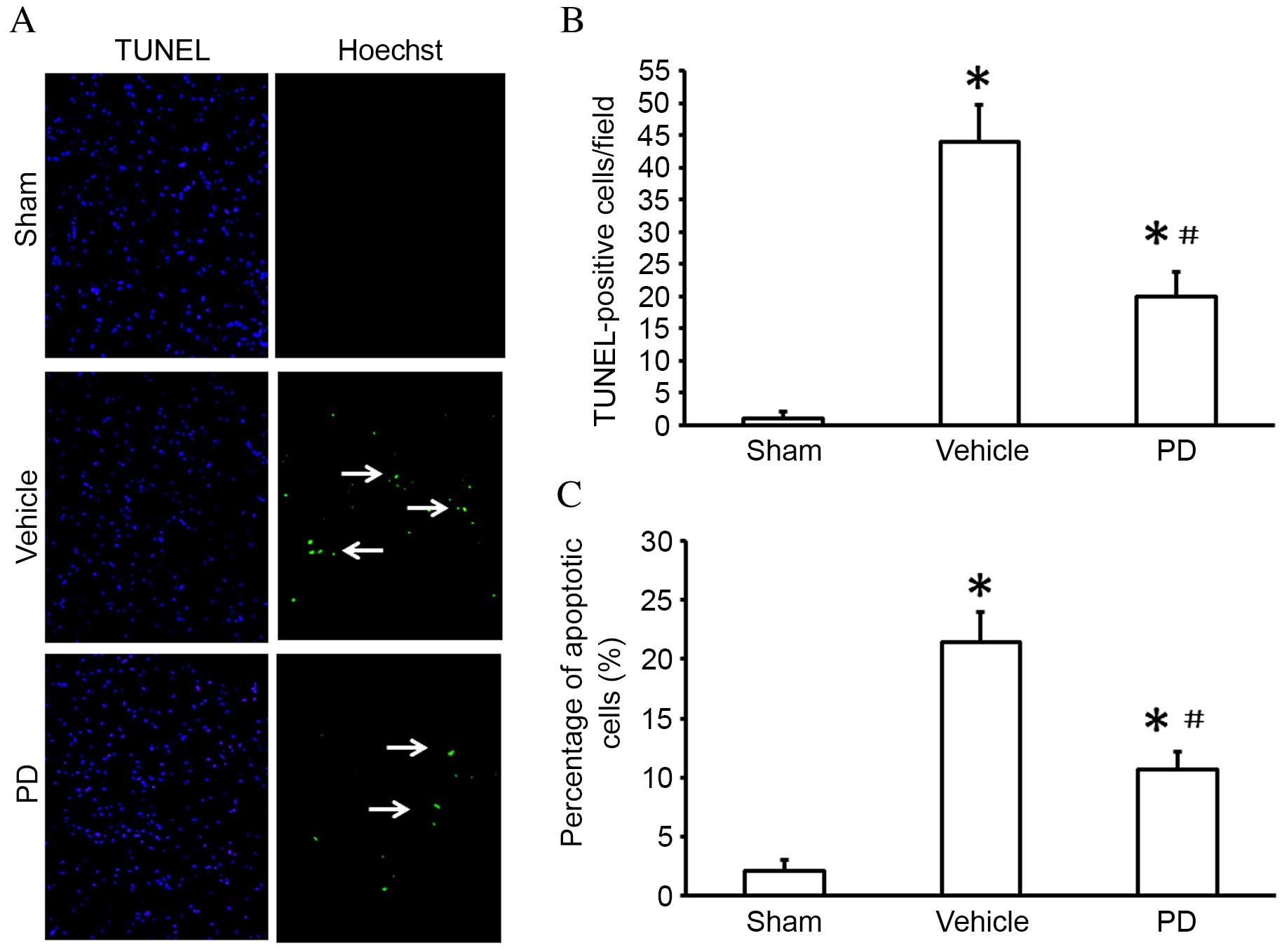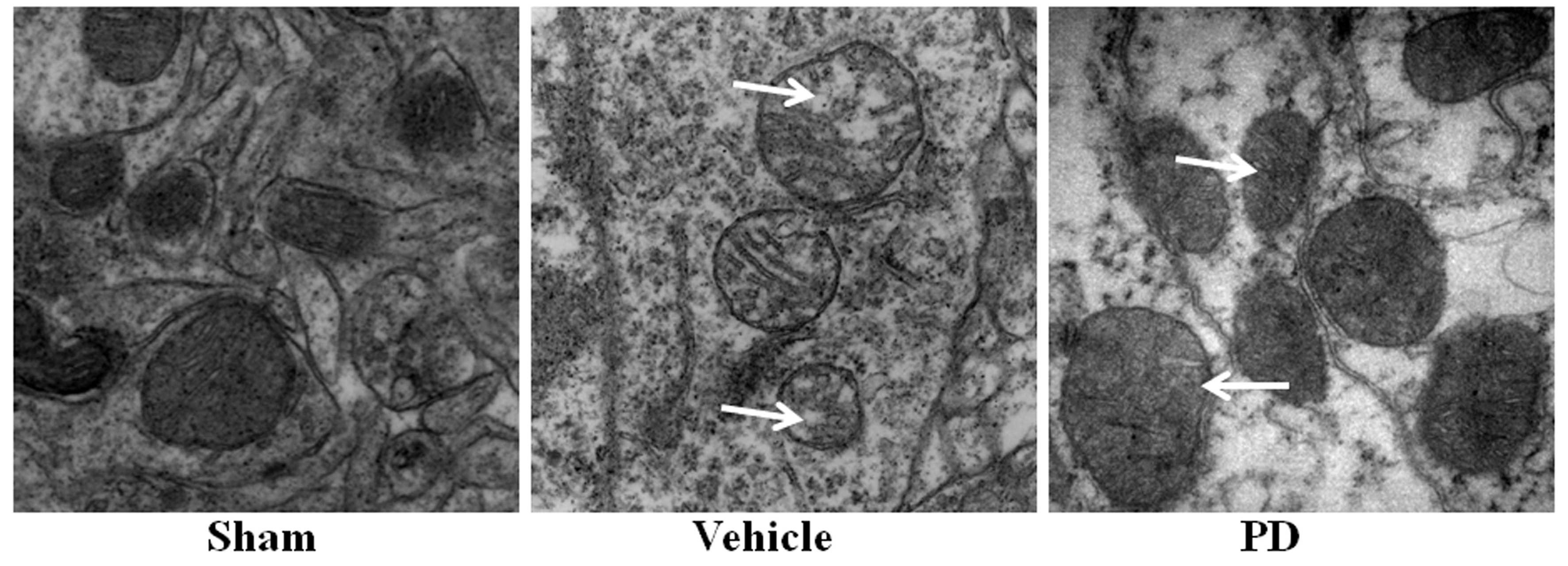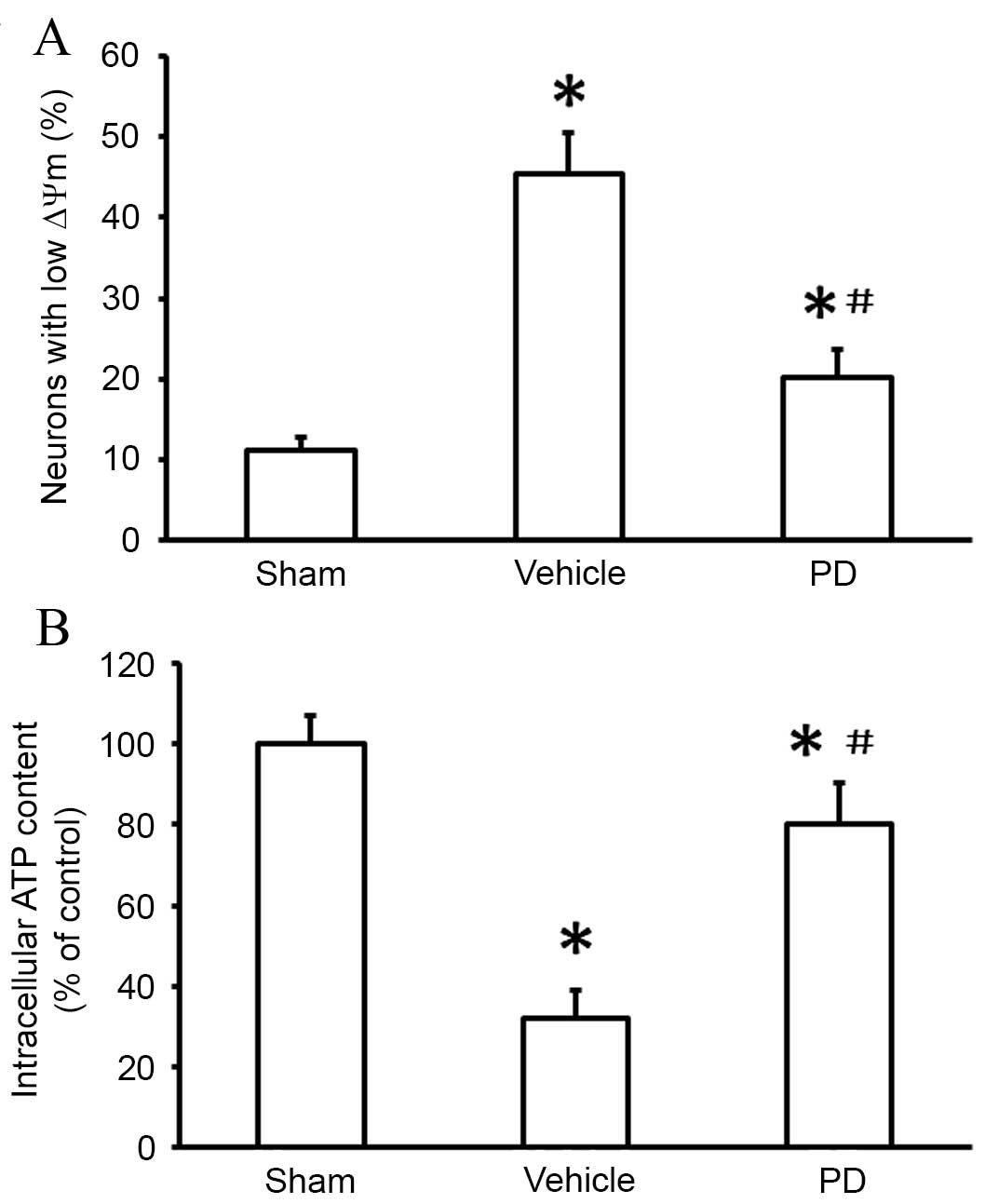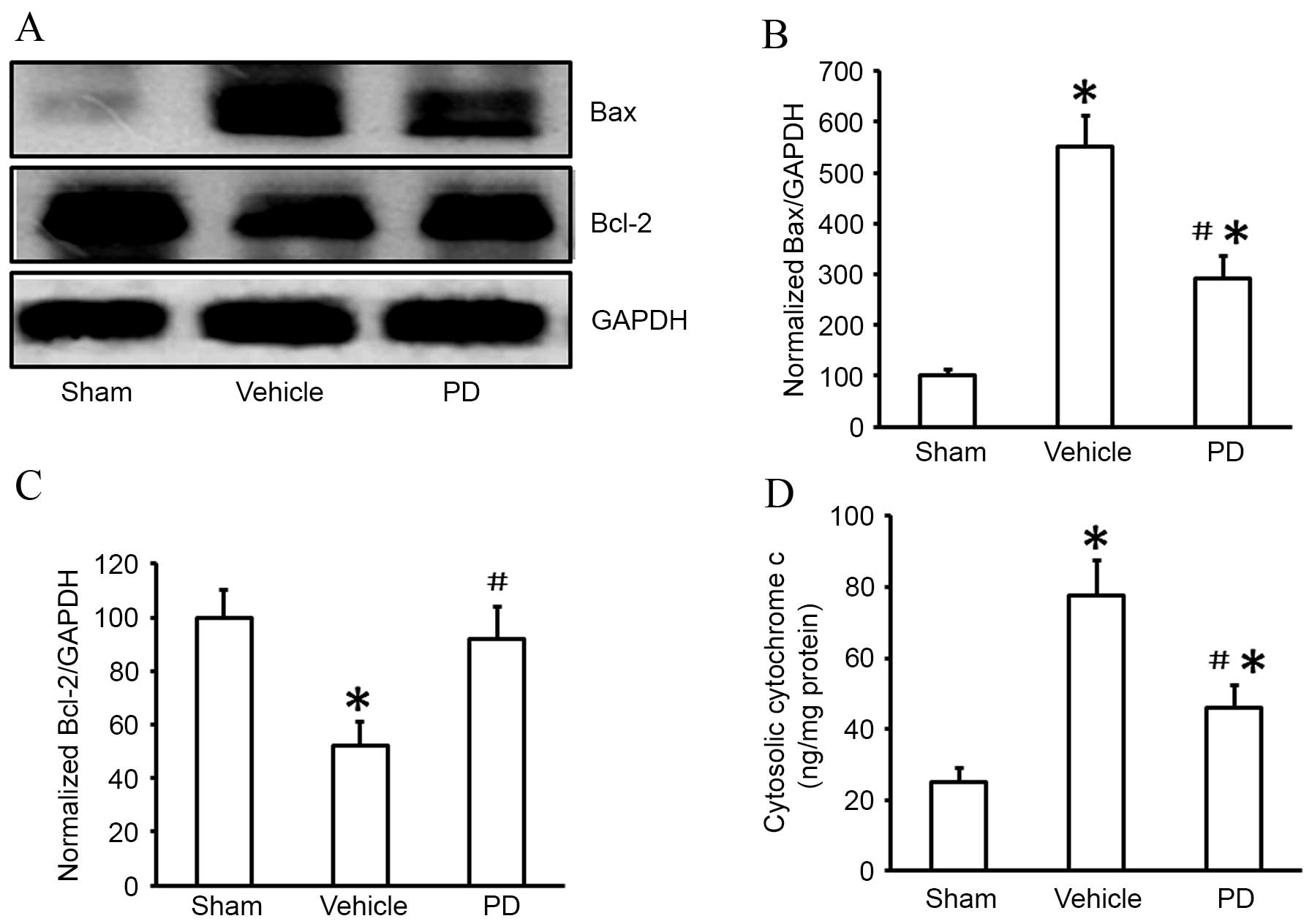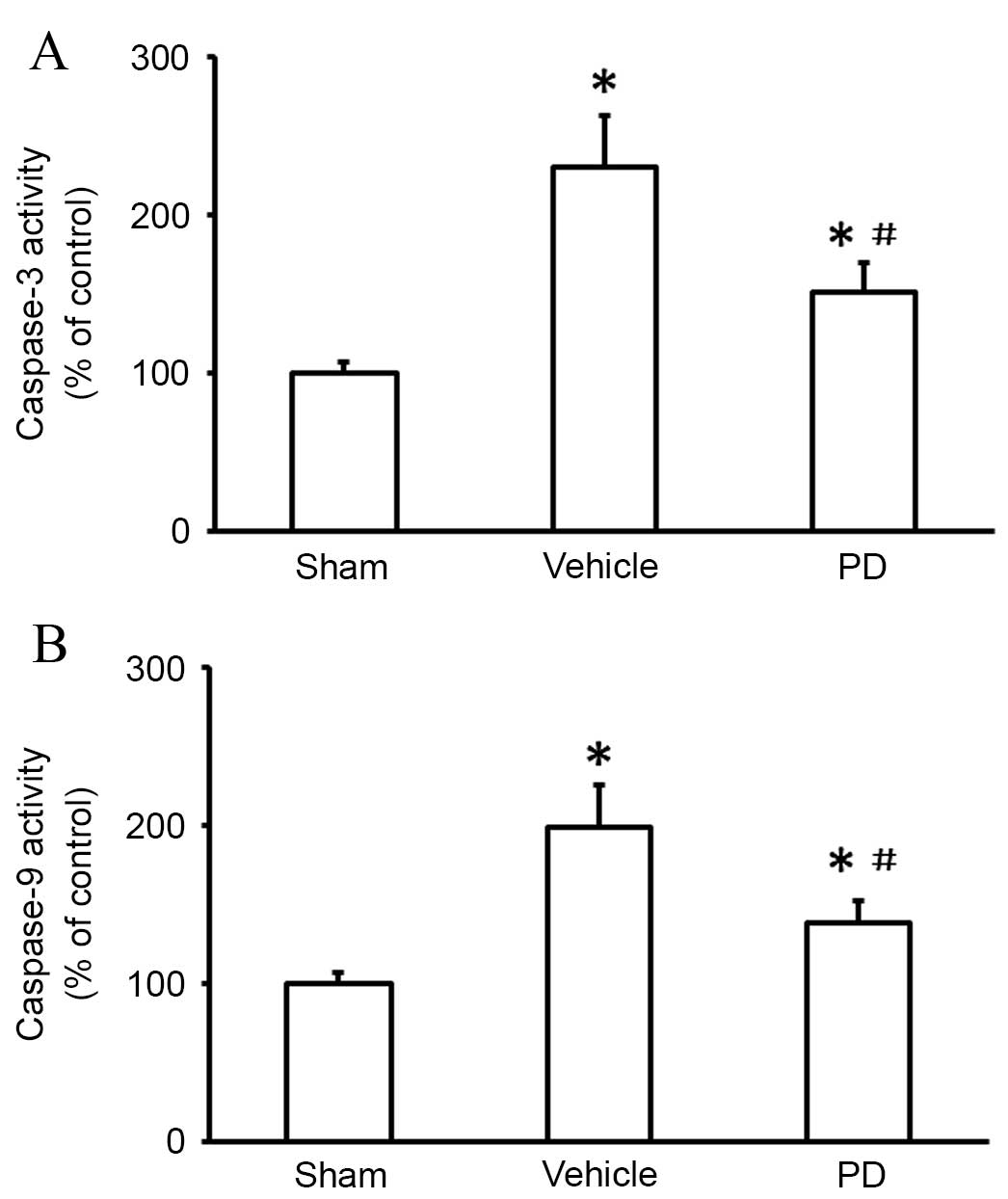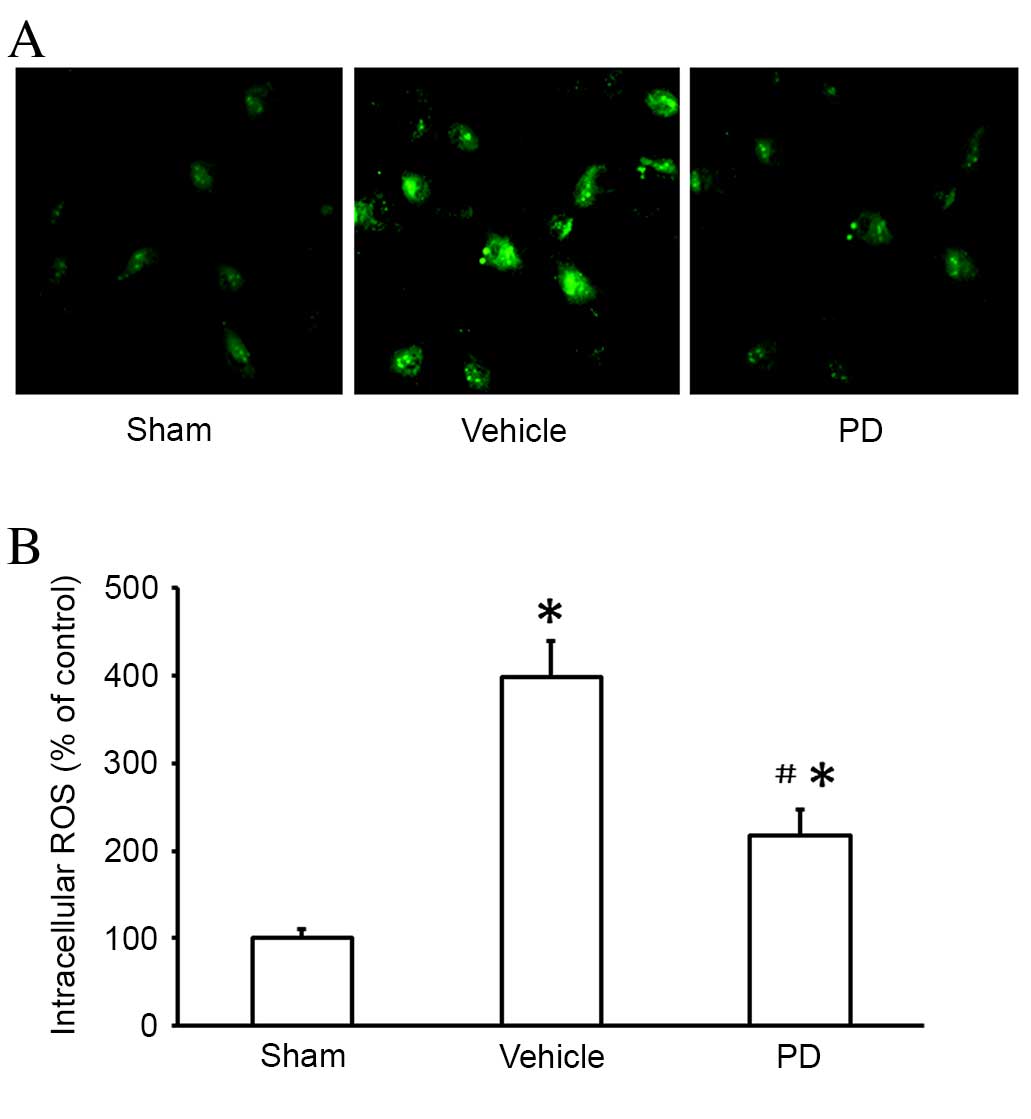|
1
|
Cai Q, Chen Z, Song P, Wu L, Wang L, Deng
G, Liu B and Chen Q: Co-transplantation of hippocampal neural stem
cells and astrocytes and microvascular endothelial cells improve
the memory in ischemic stroke rat. Int J Clin Exp Med.
8:13109–13117. 2015.PubMed/NCBI
|
|
2
|
Lin R, Lin Y, Tao J, Chen B, Yu K, Chen J,
Li X and Chen LD: Electroacupuncture ameliorates learning and
memory in rats with cerebral ischemia-reperfusion injury by
inhibiting oxidative stress and promoting p-CREB expression in the
hippocampus. Mol Med Rep. 12:6807–6814. 2015.PubMed/NCBI
|
|
3
|
Ljubisavljevic MR, Javid A, Oommen J,
Parekh K, Nagelkerke N, Shehab S and Adrian TE: The Effects of
different repetitive transcranial magnetic stimulation (rTMS)
protocols on cortical gene expression in a rat model of cerebral
ischemic-reperfusion injury. PLoS One. 10:e1398922015. View Article : Google Scholar
|
|
4
|
Yang W, Chen X, Pan J, Ge H, Yin K, Wu Z,
Li X, Sha D and Xu Y: Malibatol A protects against brain injury
through reversing mitochondrial dysfunction in experimental stroke.
Neurochem Int. 80:33–40. 2015. View Article : Google Scholar : PubMed/NCBI
|
|
5
|
Palencia G, Medrano JÁ, Ortiz-Plata A,
Farfán DJ, Sotelo J, Sánchez A and Trejo-Solís C: Anti-apoptotic,
anti-oxidant and anti-inflammatory effects of thalidomide on
cerebral ischemia/reperfusion injury in rats. J Neurol Sci.
351:78–87. 2015. View Article : Google Scholar : PubMed/NCBI
|
|
6
|
Fang L, Gao H, Zhang W, Zhang W and Wang
Y: Resveratrol alleviates nerve injury after cerebral ischemia and
reperfusion in mice by inhibiting inflammation and apoptosis. Int J
Clin Exp Med. 8:3219–3226. 2015.PubMed/NCBI
|
|
7
|
Tao T, Liu Y, Zhang J, Xu Y, Li W and Zhao
M: Therapeutic hypercapnia improves functional recovery and
attenuates injury via antiapoptotic mechanisms in a rat focal
cerebral ischemia/reperfusion model. Brain Res. 1533:52–62. 2013.
View Article : Google Scholar : PubMed/NCBI
|
|
8
|
Lu YP, Liu SY, Sun H, Wu XM, Li JJ and Zhu
L: Neuroprotective effect of astaxanthin on H(2)O(2)-induced
neurotoxicity in vitro and on focal cerebral ischemia in vivo.
Brain Res. 1360:40–48. 2010. View Article : Google Scholar : PubMed/NCBI
|
|
9
|
Li G, Li T, Li Y, Cai S, Zhang Z, Zeng Z,
Wang X, Gao Y, Li Y and Chen Z: Ulinastatin inhibits
oxidant-induced endothelial hyperpermeability and apoptotic
signaling. Int J Clin Exp Pathol. 7:7342–7350. 2014.PubMed/NCBI
|
|
10
|
Liu J, Bai J, Jiang G, Li X, Wang J, Wu D,
Owusu L, Zhang E and Li W: Anti-tumor effect of Pinus massoniana
Bark Proanthocyanidins on ovarian cancer through induction of cell
apoptosis and inhibition of cell migration. PLoS One.
10:e1421572015.
|
|
11
|
Li T, Yuan G, Zhang L, Ye L, Li S, Fan Y
and Sun J: ApoG2 inhibits the antiapoptotic protein, Mcl1 and
induces mitochondria-dependent apoptosis in human colorectal cancer
cells. Mol Med Rep. 12:6976–6984. 2015.PubMed/NCBI
|
|
12
|
Li T, Liu Y, Li G, Wang X, Zeng Z, Cai S,
Li F and Chen Z: Polydatin attenuates ipopolysaccharide-induced
acute lung injury in rats. Int J Clin Exp Pathol. 7:8401–8410.
2014.PubMed/NCBI
|
|
13
|
Li T, Cai S, Zeng Z, Zhang J, Gao Y, Wang
X and Chen Z: Protective effect of polydatin against burn-induced
lung injury in rats. Respir Care. 59:1412–1421. 2014. View Article : Google Scholar : PubMed/NCBI
|
|
14
|
Jiang X, Liu W, Deng J, Lan L, Xue X,
Zhang C, Cai G, Luo X and Liu J: Polydatin protects cardiac
function against burn injury by inhibiting sarcoplasmic reticulum
Ca2+ leak by reducing oxidative modification of ryanodine
receptors. Free Radic Biol Med. 60:292–299. 2013. View Article : Google Scholar : PubMed/NCBI
|
|
15
|
Wang X, Song R, Bian HN, Brunk UT, Zhao M
and Zhao KS: Polydatin, a natural polyphenol, protects arterial
smooth muscle cells against mitochondrial dysfunction and lysosomal
destabilization following hemorrhagic shock. Am J Physiol Regul
Integr Comp Physiol. 302:R805–R814. 2012. View Article : Google Scholar : PubMed/NCBI
|
|
16
|
Wang X, Song R, Chen Y, Zhao M and Zhao
KS: Polydatin-a new mitochondria protector for acute severe
hemorrhagic shock treatment. Expert Opin Investig Drugs.
22:169–179. 2013. View Article : Google Scholar : PubMed/NCBI
|
|
17
|
Zeng Z, Chen Z, Xu S, Song R, Yang H and
Zhao KS: Polydatin alleviates small intestine injury during
hemorrhagic shock as a SIRT1 activator. Oxid Med Cell Longev.
2015:9659612015. View Article : Google Scholar : PubMed/NCBI
|
|
18
|
Zeng Z, Chen Z, Li T, Zhang J, Gao Y, Xu
S, Cai S and Zhao KS: Polydatin: A new therapeutic agent against
multiorgan dysfunction. J Surg Res. 198:192–199. 2015. View Article : Google Scholar : PubMed/NCBI
|
|
19
|
Sun J, Li YZ, Ding YH, Wang J, Geng J,
Yang H, Ren J, Tang JY and Gao J: Neuroprotective effects of gallic
acid against hypoxia/reoxygenation-induced mitochondrial
dysfunctions in vitro and cerebral ischemia/reperfusion injury in
vivo. Brain Res. 1589:126–139. 2014. View Article : Google Scholar : PubMed/NCBI
|
|
20
|
Li J, Yu W, Li XT, Qi SH and Li B: The
effects of propofol on mitochondrial dysfunction following focal
cerebral ischemia-reperfusion in rats. Neuropharmacology.
77:358–368. 2014. View Article : Google Scholar : PubMed/NCBI
|
|
21
|
Srivastava SK, Bhardwaj A, Arora S, Tyagi
N, Singh S, Andrews J, McClellan S, Wang B and Singh AP:
MicroRNA-345 induces apoptosis in pancreatic cancer cells through
potentiation of caspase-dependent and -independent pathways. Br J
Cancer. 113:660–668. 2015. View Article : Google Scholar : PubMed/NCBI
|
|
22
|
Todd K, Ghiso J and Rostagno A: Oxidative
stress and mitochondria-mediated cell death mechanisms triggered by
the familial Danish dementia ADan amyloid. Neurobiol Dis.
85:130–143. 2015. View Article : Google Scholar : PubMed/NCBI
|
|
23
|
Cao ZH, Zheng QY, Li GQ, Hu XB, Feng SL,
Xu GL and Zhang KQ: STAT1-mediated down-regulation of Bcl-2
expression is involved in IFN-γ/TNF-α-induced apoptosis in NIT-1
cells. PLoS One. 10:e1209212015.
|
|
24
|
Kvansakul M and Hinds MG: The Bcl-2
family: Structures, interactions and targets for drug discovery.
Apoptosis. 20:136–150. 2015. View Article : Google Scholar : PubMed/NCBI
|















